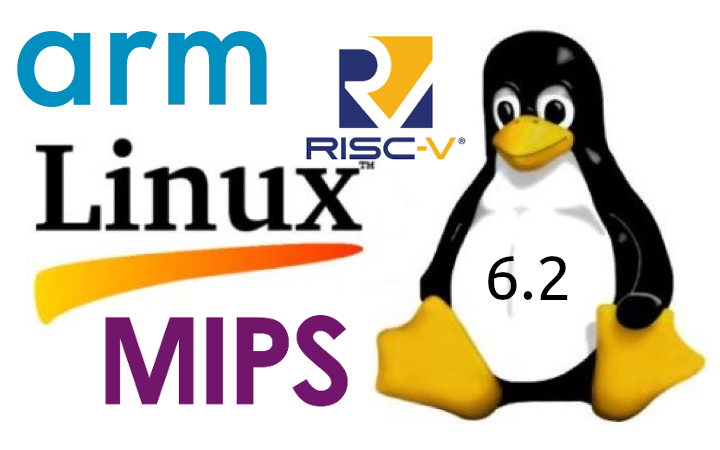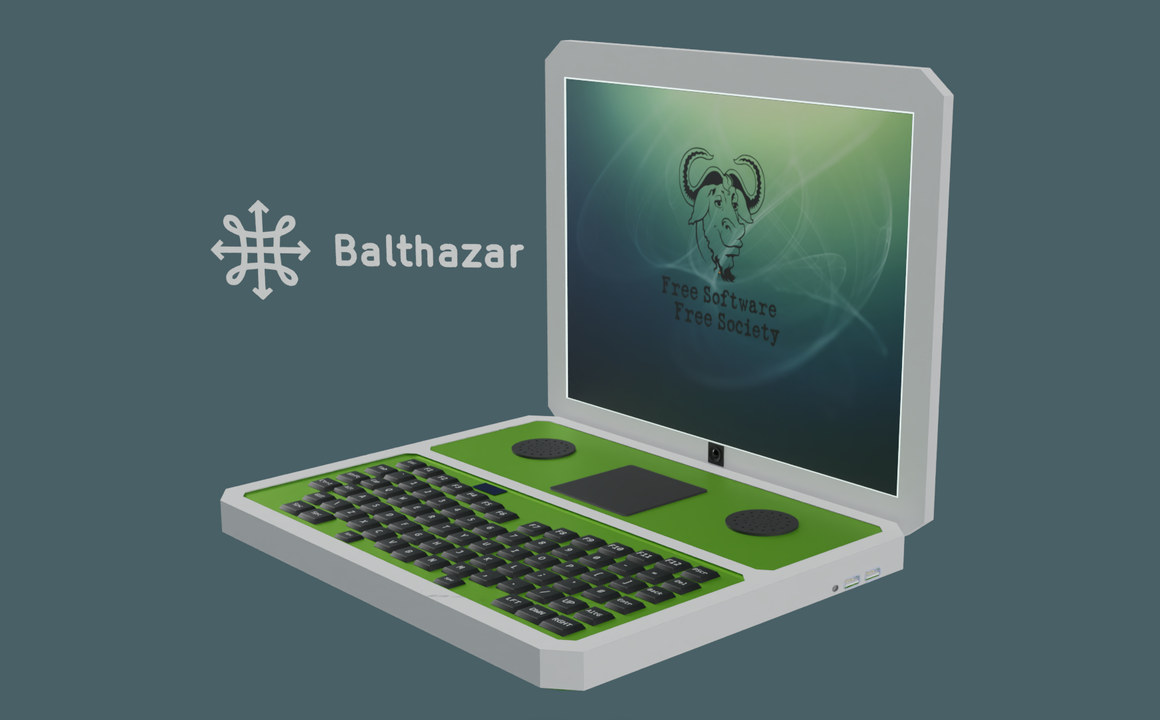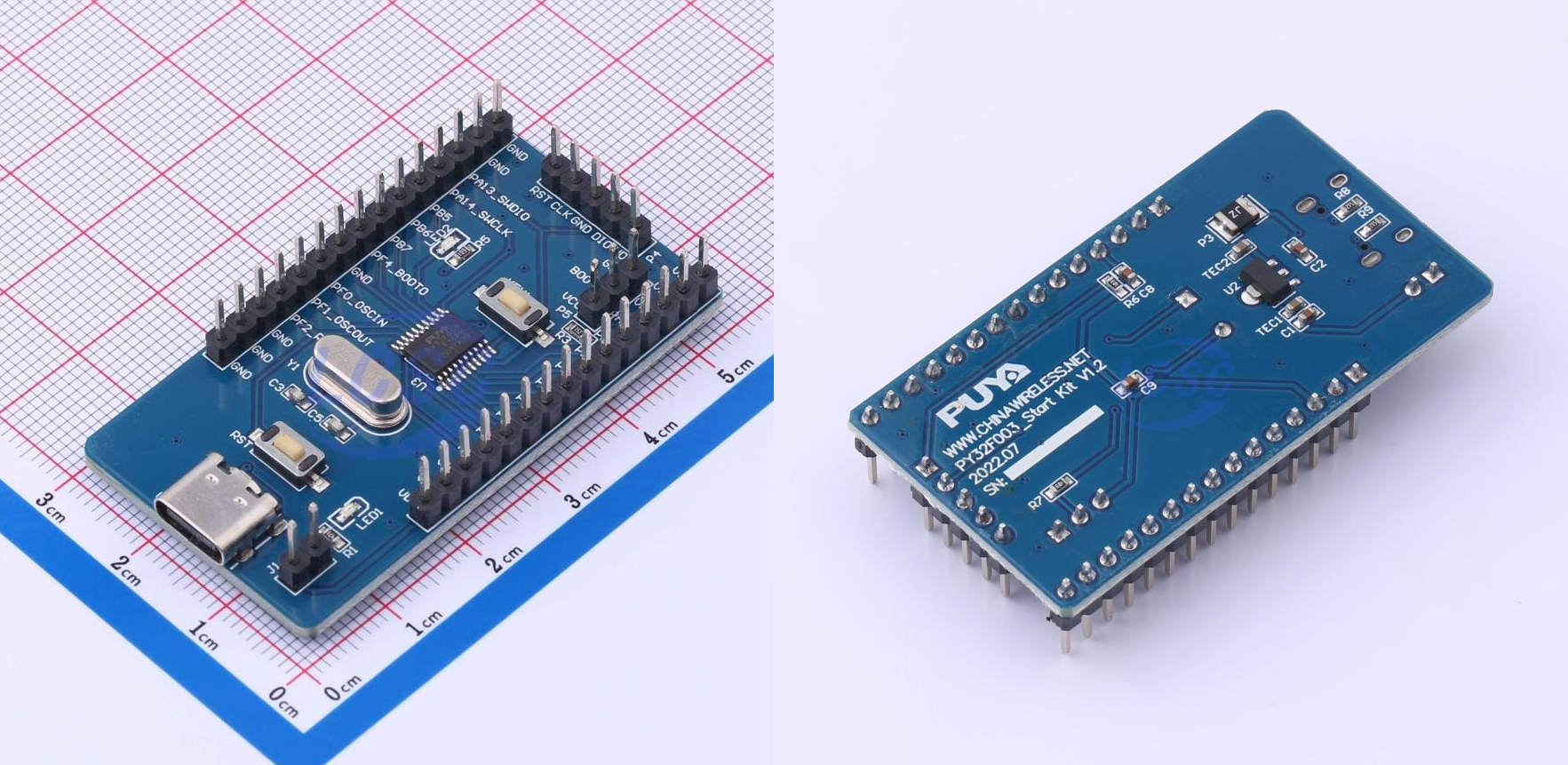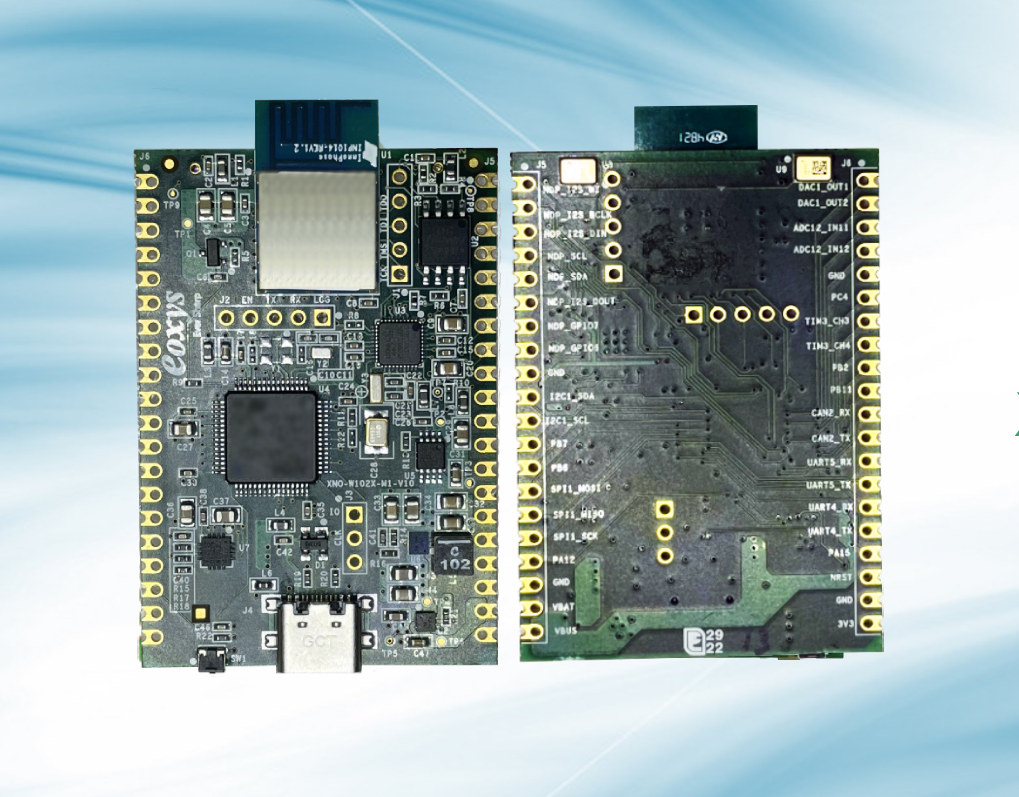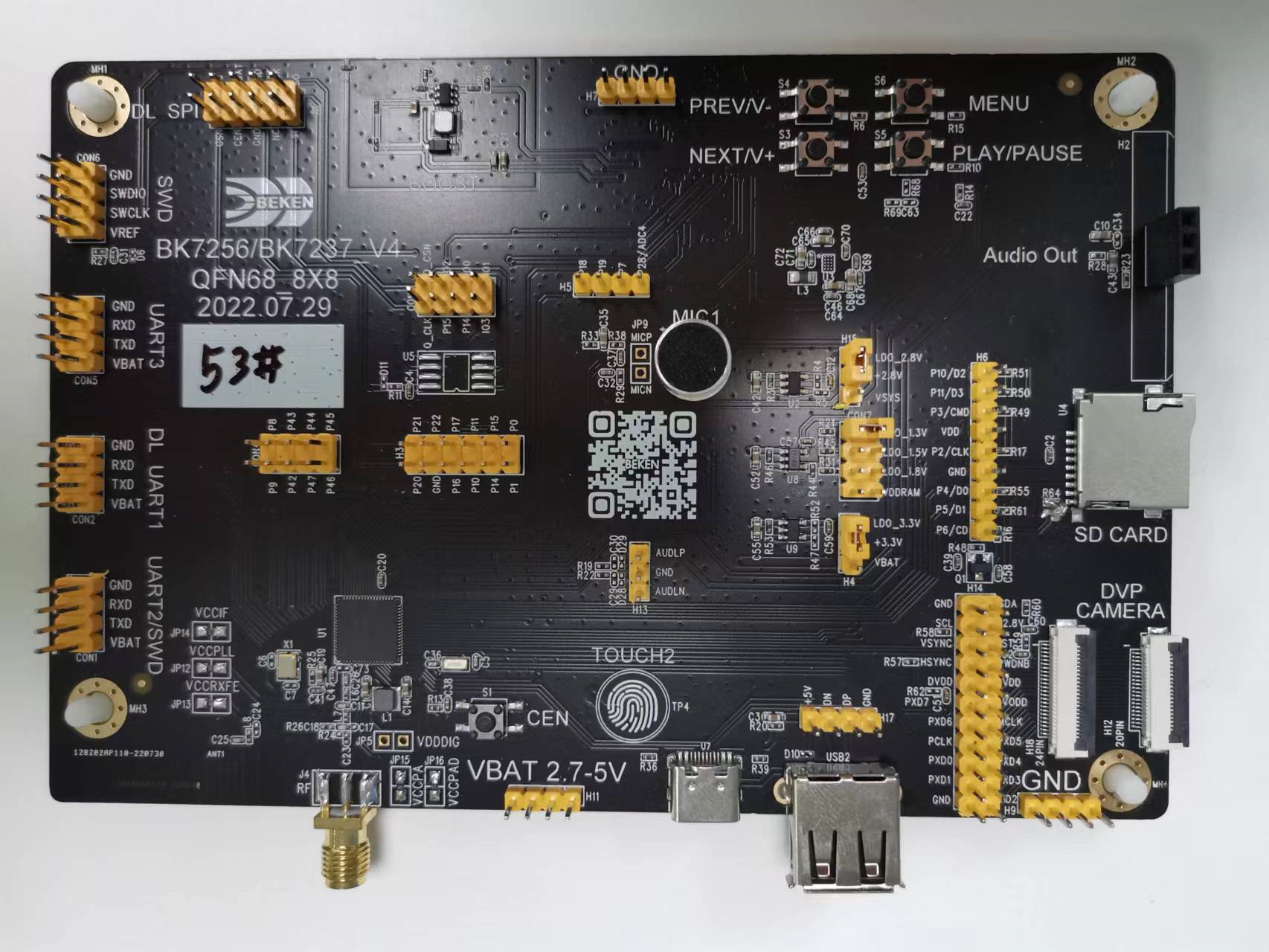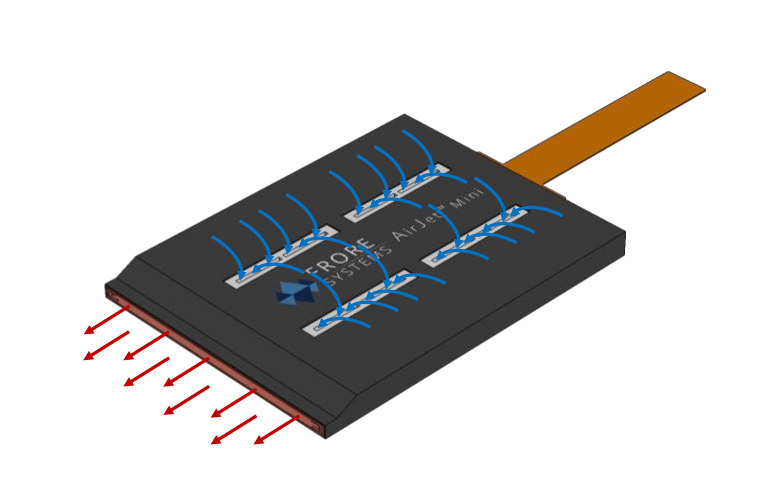Linux 6.2 has just been released with Linus Torvalds making the announcement on LKML as usual: So here we are, right on (the extended) schedule, with 6.2 out. Nothing unexpected happened last week, with just a random selection of small fixes spread all over, with nothing really standing out. The shortlog is tiny and appended below, you can scroll through it if you’re bored. Wed have a couple of small things that Thorsten was tracking on the regression side, but I wasn’t going to apply any last-minute patches that weren’t actively pushed by maintainers, so they will have to show up for stable. Nothing seemed even remotely worth trying to delay things for. And this obviously means that the 6.3 merge window will open tomorrow, and I already have 30+ pull requests queued up, which I really appreciate. I like how people have started to take the whole “ready for […]
Balthazar – An open-source hardware modular RISC-V, Arm, or FPGA laptop
The Balthazar Personal Computing Device (BPCD) is an open-source hardware 13.3-inch laptop with a RISC-V, Arm, or FPGA module and designed to be upgradable, expandable, and sustainable. The developers say the laptop is based on a few concepts inspired by the EOMA68 project. The EOMA68 is a CPU module based on the PCMCIA form factor, and an Allwinner A20 EOMA68 module was showcased in a prototype of the Rhombus Tech 15.6-inch Libre Laptop but I don’t think the project was ever manufactured. Balthazar laptop features: SoM with RISC-V, FPGA, or Arm Cortex-A7x processor plus memory and flash Storage – SATA SSD, eSATA connector, microSD card socket Display – 13.3-inch non-glare display Video Output – HDMI Audio – Speakers, detachable microphone array Camera – Detachable webcam Connectivity – Ethernet, WiFi USB – 2x USB 3.0 ports, Micro USB OTG port, Micro USB port User input Waterproof keyboard with an illuminated track-point […]
Meet Puya PY32 – The 8-cent Arm Cortex-M0+ microcontroller
Puya Semiconductor (Shanghai) PY32 Arm Cortex-M0+ microcontroller family may be the world’s cheapest 32-bit Arm MCUs with one of the parts – PY32F002AL15S6TU – selling for under 8 cents per unit in 5K+ orders with 3KB SRAM, 20KB flash in an 8-pin SOP-8 package. Back in 2016, when I searched for the world’s cheapest MCU, I found Holtek HT48R002 8-bit microcontroller, and a few years later (2019), Padauk PMS150C “3 Cents” MCU came to my attention. However, both are 8-bit microcontrollers that come with OTG (One-Time Programming) ROM, meaning they can’t be easily used for development or updated. The Puya PY32 microcontrollers are in the same price range but offer a 32-bit Arm Cortex-M0+ core clocked at 24 to 48MHz, 16KB to 64KB flash storage, and 2KB to 8KB SRAM. There are three PY32 sub-families, but let’s check out the PY32F002 family in detail since those are the cheapest parts. […]
Eoxys Xeno+ Nano ML board combines NuMicro M2354 or STM32L4 MCU with Talaria TWO ultra low power WiFi & BLE 5.0 module
Eoxys Xeno+ Nano ML is a wireless machine learning (ML) board with either Nuvoton NuMicro M2354 or STMicro STM32L4 microcontroller, InnoPhase IoT’s Talaria TWO ultra-low power Wi-Fi and BLE 5.0 module, and the Syntiant Core 2 NDP120 neural decision processor we first noticed in the Arduino Nicla Voice module a few weeks ago. The boards/modules are designed for intelligent and secure IoT devices for smart home, industrial, and medical automation applications, and the company claims it can be used in Wi-Fi IoT sensors with up to 10+ years thanks to the low-power chips and circuitry used in the design. Eoxys Xeno+ Nano ML specifications: General purpose MCU (one or the other) STMicro STM32L4 Arm Cortex-M4 microcontroller at 80MHz with 1MB flash, 128KB/352KB SRAM Nuvoton NuMicro M2354 Arm Cortex-M23 microcontroller at 96MHz with 1MB flash, 128KB SRAM. Wireless module Innophase Talaria TWO ultra-low-power 2.4GHz 802.11b/n/g WiFi 4 and Bluetooth LE 5.0 […]
Beken BK7256 320 MHz dual-core RISC-V IoT MCU offers WiFi 6, Bluetooth 5.2, JPEG video encoder/decoder
Until now, I had only heard about Beken Bluetooth audio chips, but I’ve just been informed the company is also making WiFi chips such as the BK7256 that are notably found in some Tuya Smart Home modules. Beken offers both RISC-V and Arm WiFi and Bluetooth chips with features summarized as follows: BK7235 single-core RISC-V MCU up to 320 MHz with 2.4 GHz WiFi 6 802.11ax and Bluetooth 5.2 LE, 4MB flash, 512KB SRAM, optional 4MB PSRAM BK7236 dual-core Arm MCU up to 120 to 240 MHh with 2.4 GHz WiFi 6 802.11ax and Bluetooth 5.3 dual mode, 4MB flash, 512KB SRAM, optional 4MB PSRAM BK7237 dual-core RISC-V MCU up to 320 MHz with 2.4 GHz WiFi 6 802.11ax and Bluetooth 5.2 dual mode, 4 or 8MB flash, 512KB SRAM, optional 4MB PSRAM BK7256 dual-core RISC-V MCU up to 320 MHz with 2.4 GHz WiFi 6 802.11ax and Bluetooth 5.2 […]
FOSDEM 2023 schedule – Open-source Embedded, Mobile, IoT, Arm, RISC-V, etc… projects
After two years of taking place exclusively online, FOSDEM 2023 is back in Brussels, Belgium with thousands expected to attend the 2023 version of the “Free and Open Source Developers’ European Meeting” both onsite and online. FOSDEM 2023 will take place on February 4-5 with 776 speakers, 762 events, and 63 tracks. As usual, I’ve made my own little virtual schedule below mostly with sessions from the Embedded, Mobile and Automotive devroom, but also other devrooms including “Open Media”, “FOSS Educational Programming Languages devroom”, “RISC-V”, and others. FOSDEM Day 1 – Saturday February 4, 2023 10:30 – 10:55 – GStreamer State of the Union 2023 by Olivier Crête GStreamer is a popular multimedia framework making it possible to create a large variety of applications dealing with audio and video. Since the last FOSDEM, it has received a lot of new features: its RTP & WebRTC stack has greatly improved, Rust […]
U-boot now supports booting Linux from an HTTP server
Up until now, U-boot would only support the User datagram protocol (UDP) allowing for TFTP and NFS boot, but Linaro has now added support for TCP and HTTP in U-boot in order to boot Linux from common web servers. TFTP boot from U-boot has been supported for years, as around the year 2006 I remember implementing TFTP Linux boot for a Karaoke system in order to lower the BoM cost by selecting a smaller flash device, and I also explained how to boot Linux on a TV box with TFTP back in 2014. This requires installing a TFTP server on your server, which is quite a trivial task, but HTTP servers are omnipresent, so it’s a welcome addition to U-boot. If you want to use HTTP to boot Linux, it needs to be enabled in the U-boot config:
|
1 2 3 |
CONFIG_PROT_TCP=y CONFIG_PROT_TCP_SACK=y CONFIG_CMD_WGET=y |
The top and bottom options are pretty obvious, and the second […]
Quiet, ultrathin AirJet solid state active cooling chips could replace fans
Frore Systems Airjet Mini and Airjet Pro are active cooling chips that are just 2.8mm thick and quietly suck cool air in from the top of the chip before pushing it out the sides with the aim to replace traditional fan-based solutions in ultrabooks, or be integrated into VR headsets and smartphones for improved cooling. Yesterday we saw that cameras could clean themselves with micro-vibrations, and it happens that processors can be cooled with vibrations too as the Airjet chips are comprised of tiny membranes that vibrate at ultrasonic frequencies to generate a flow of air that enters through inlet vents in the top and transformed into high-velocity pulsating jets exiting from one side of the chip. The AirJet module is actually not placed directly on the processor in ultrabooks but on copper pipes because it allows for thinner designs that way. The company says the AirJet Mini and Pro […]


